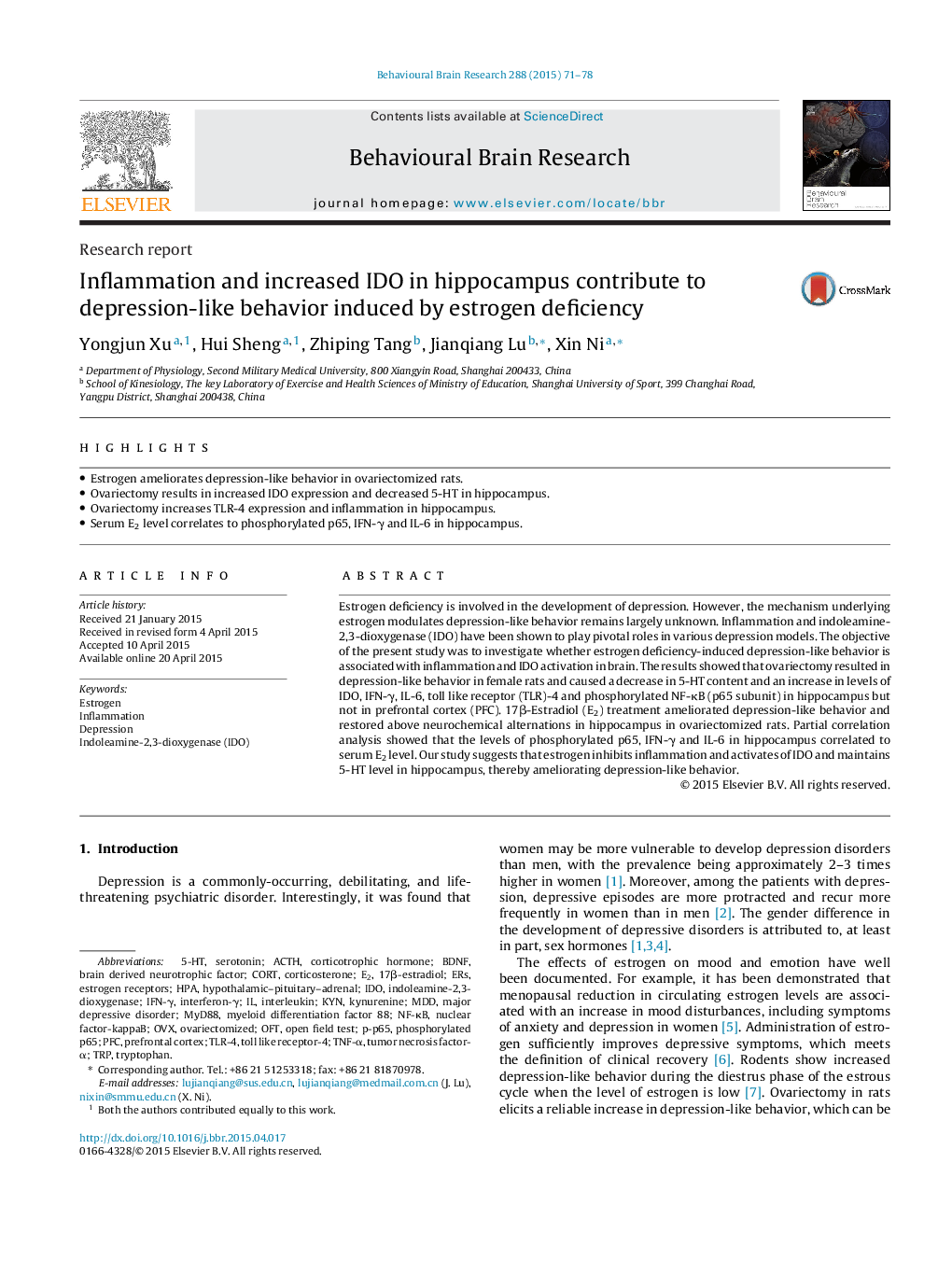| Article ID | Journal | Published Year | Pages | File Type |
|---|---|---|---|---|
| 6256704 | Behavioural Brain Research | 2015 | 8 Pages |
â¢Estrogen ameliorates depression-like behavior in ovariectomized rats.â¢Ovariectomy results in increased IDO expression and decreased 5-HT in hippocampus.â¢Ovariectomy increases TLR-4 expression and inflammation in hippocampus.â¢Serum E2 level correlates to phosphorylated p65, IFN-γ and IL-6 in hippocampus.
Estrogen deficiency is involved in the development of depression. However, the mechanism underlying estrogen modulates depression-like behavior remains largely unknown. Inflammation and indoleamine-2,3-dioxygenase (IDO) have been shown to play pivotal roles in various depression models. The objective of the present study was to investigate whether estrogen deficiency-induced depression-like behavior is associated with inflammation and IDO activation in brain. The results showed that ovariectomy resulted in depression-like behavior in female rats and caused a decrease in 5-HT content and an increase in levels of IDO, IFN-γ, IL-6, toll like receptor (TLR)-4 and phosphorylated NF-κB (p65 subunit) in hippocampus but not in prefrontal cortex (PFC). 17β-Estradiol (E2) treatment ameliorated depression-like behavior and restored above neurochemical alternations in hippocampus in ovariectomized rats. Partial correlation analysis showed that the levels of phosphorylated p65, IFN-γ and IL-6 in hippocampus correlated to serum E2 level. Our study suggests that estrogen inhibits inflammation and activates of IDO and maintains 5-HT level in hippocampus, thereby ameliorating depression-like behavior.
